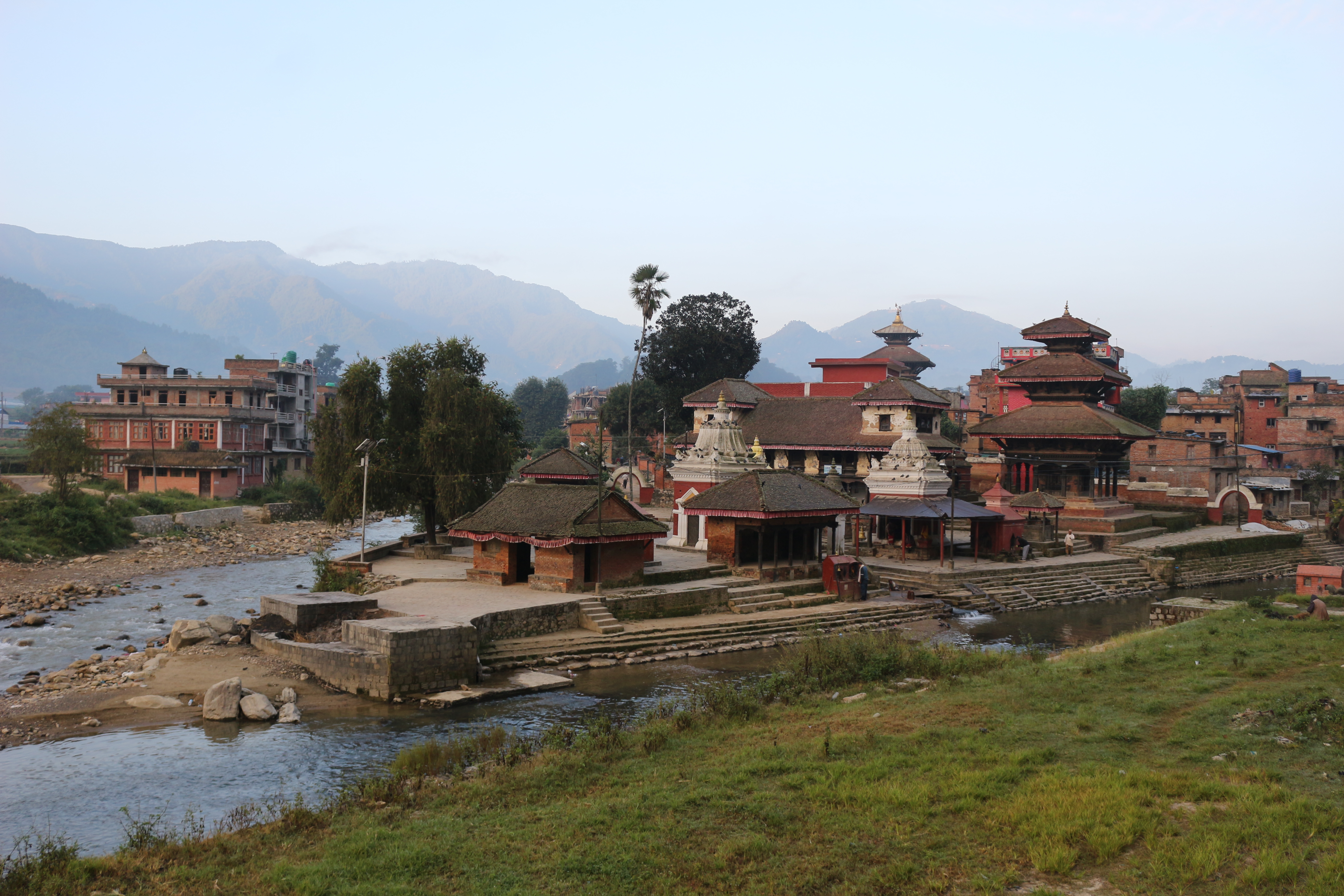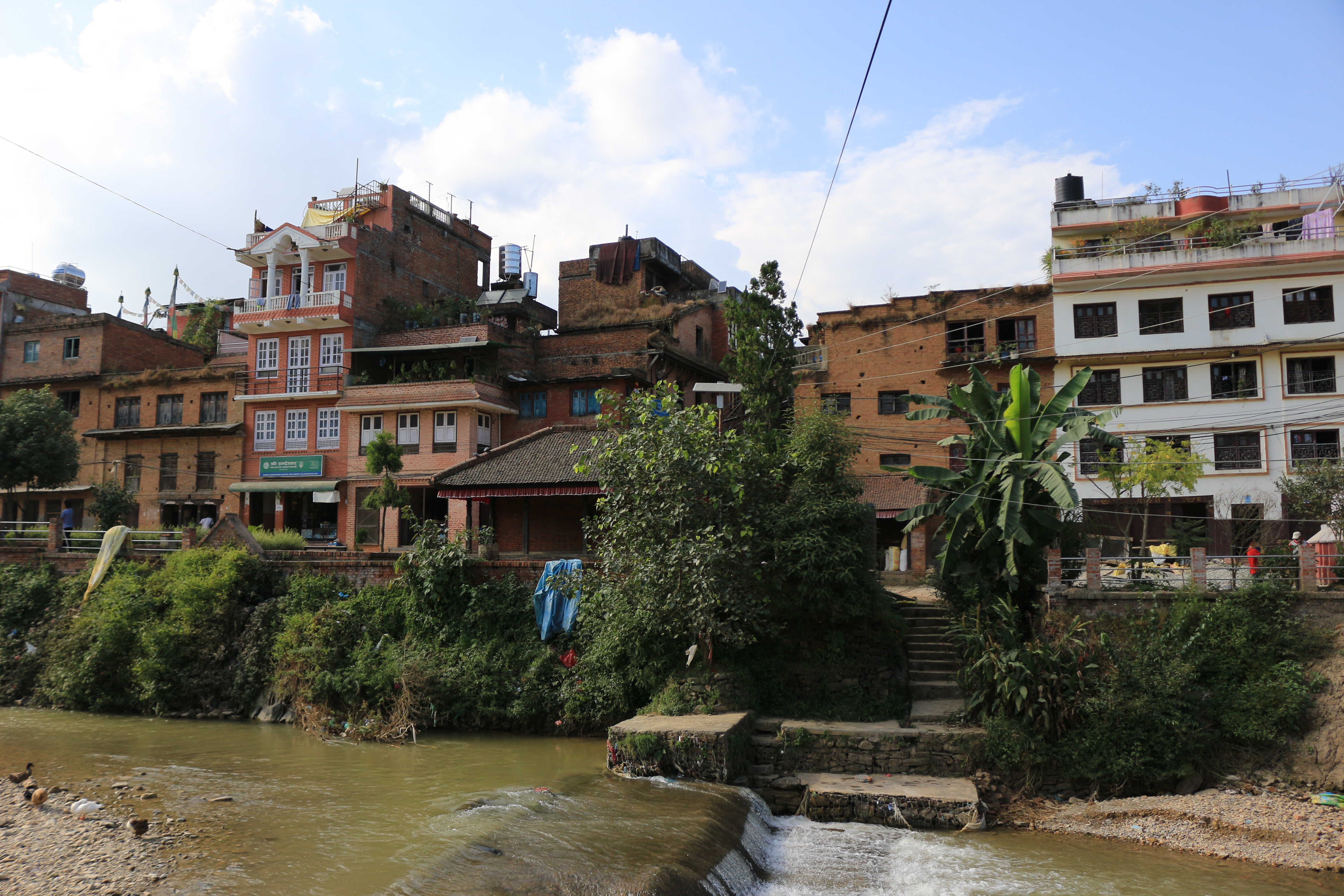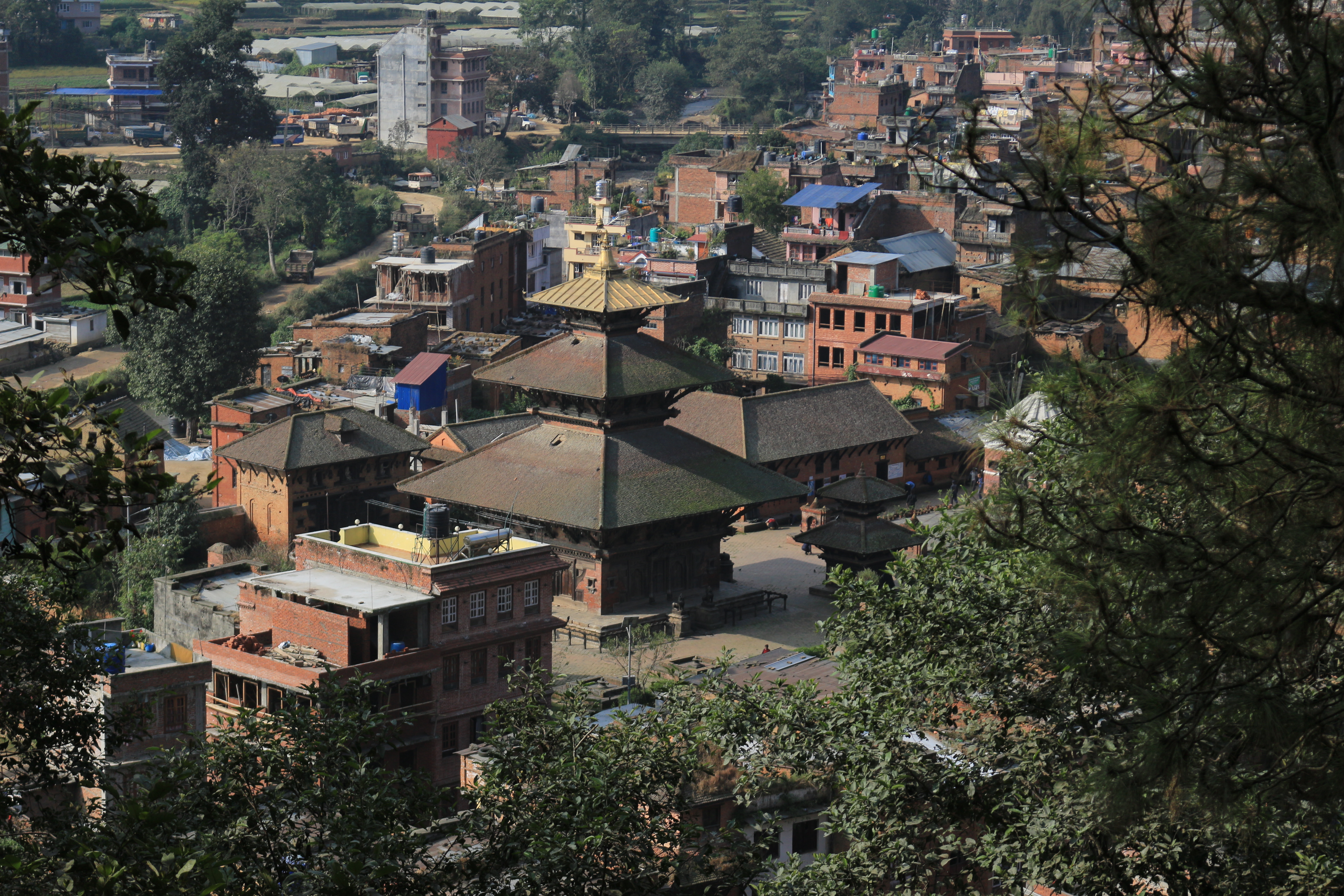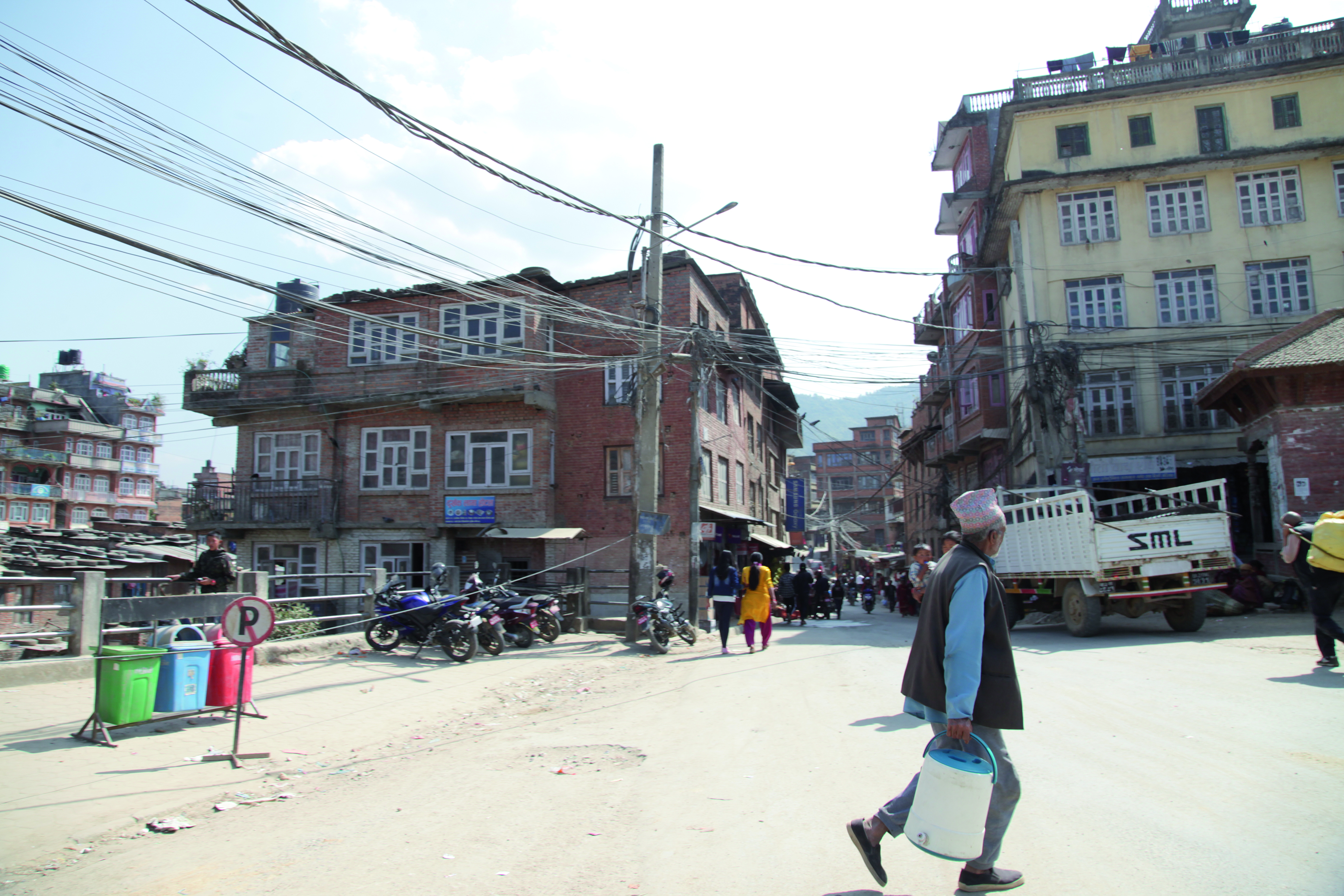‘Looop Lapeta’ movie review: The over-extended looop of life and death
Remember “Delhi Belly?” The 2011 Hindi action-comedy that paved the way for more quirky, low-budget but well-written and executed films in the Indian film industry? Released this weekend on Netflix, “Looop Lapeta”—also said to be a remake of the 1998 German thriller “Run Lola Run”—knowingly or unknowingly styles itself after Delhi Belly. Looop Lapeta tries to emulate Delhi Belly’s idiosyncrasies in writing, direction, acting, background music, and cinematography and improvises on Run Lola Run’s story.
Savina Borkar aka Savi (Taapsee Pannu)—a track runner whose career has just ended after an on-field accident—is in a live-in relationship with Satyajeet aka Satya (Tahir Raj Bhasin), a gambling addict who wants to get rich quickly. As greedy and conniving as he is, Satya still manages to get in a mess with local goon Victor (Dibyendu Bhattacharya). Now Savi has to find Rs five million in 50 minutes to save Satya.
In the other bit of the story, brothers Appu and Gappu (Manik Papneja and Raghav Raj Kakker) are plotting to rob their father’s jewelry store while a desperate cab driver Robert (Alistar Bennis) is planning to elope with his girlfriend Julia (Shreya Dhanwanthary) who is getting married at a local church.
Although the stories in the film concern different sets of people, their fates are intertwined. With Satya-Savi’s story as the main peg, all the characters are interlinked in a time loop that Savi controls. Based on her choices and actions, everyone’s life takes a different course while she struggles to get a happy ending for herself and Satya.
With all these stories to tell in an unconventional mode and with the artistic freedom given by OTT platforms, Looop Lapeta seems like a fast-paced action comedy with plenty of mind-boggling twists. But only the trailer and the first quarter of the film give you that experience. As the film progresses, things start getting repetitive (literally!) and boring.
The problem with Looop Lapeta is, it just tries too hard. The time loops are rather long, maybe trying to justify the extra ‘o’ in the film’s misnomer of a title and even with its length exceeding two hours, storytelling seems lacking in places. Besides Savi, none of the characters get a proper back story and hers is not justified either. Director Aakash Bhatia seems to be lost somewhere between commercial and arthouse cinema in this film penned by four writers in total.
The group of writers tries to be clever, inserting cryptic messages and allusions to other films, including a very-very famous Hollywood blockbuster from the early 90s. Some parts and conversations in the movie also allude to the story of Savitri who prevented her husband Satyavan’s death in Mahabharata. But all this wittiness is useless with the film’s imperfect storytelling and weak character development.
Also, the two lead characters—Tahir Raj Bhasin and Taapsee Pannu—disappoint with their performances. Somehow, Taapsee doesn’t fit into the role of a recently retired athlete and throughout the film, her performance is akin to that of a high schooler who has not understood her assignment. Similarly, Tahir seems to have over-read his assignment is trying to over-perform for his teachers. The critical acclaim the actor earned from his recent series “Yeh Kaali Kaali Ankhein” is getting undone with his uncomfortable goofiness in Looop Lapeta.
Delhi Belly, or any other film that tries to break the conventional shackles of Bollywood, mostly have one thing in common—their background scores get them an audience of their own. Unfortunately, Looop Lapeta fails here too. Although it tries various contemporary genres and a lot of modern jazz, there’s no “Bhaag D.K. Bose” in the film. Not even something remotely close to it.
Who should watch it?
It’s Valentine’s season and you may be thinking of watching movies based on love and all. Let me tell you, Looop Lapeta is not a love story. We don’t even know whether Savi is really in love with Satya or she’s put herself in the situation because she has nothing else to do. So, the movie is more for an audience looking for an action-comedy than a love story. But lovers can still enjoy it, separately, with the forward button handy.
On Netflix
Rating: 2 stars
Genre: Action comedy
Actors: Tahir Raj Bhasin, Taapsee Pannu
Director: Aakash Bhatia
Run time: 2hrs 11 mins
‘House of Hollow’ book review: Dark and mesmerizing
Four stars
Fiction
House of Hollow
Krystal Sutherland
Published: 2021
Publisher: Hot Key Books
Pages: 300, Paperback
Strange things have always happened around the Hollow sisters—Grey, Vivi, and Iris—ever since they disappeared as children and reappeared a month later with no memory of the past. It was like they were reborn on the day they came back. Their father, Gabe Hollow, thinks something is wrong with them. Not only were their eyes and hair different, they also felt like strangers. He drives himself mad trying to work out the reason and eventually kills himself.
The girls settle into their daily routine with their mother but Grey and Vivi drop out of school and move out of their home to pursue their ‘dreams’. Grey becomes a model and designer while Vivi plays in a band. Iris, on the other hand, lives with their mother and goes to school. She (or rather her mother) hopes she will become a doctor one day. Then, 10 years later, Grey goes missing. And someone seems to be after Vivi and Iris.
The key to finding and saving Grey (as well as making sure the figure lurking in the shadows isn’t able to get to them) lies in decoding what happened all those years ago. Grey has left them clues and while trying to piece things together, they discover sinister and shocking secrets.
‘House of Hollow’ by Krystal Sutherland has a very sinister feel to it. Grey feels a little off, like she isn’t who she claims to be or maybe she knows more than she’s telling. Does she remember what happened when they disappeared? Why does the clothes she designs smell like rot and death? And can she really manipulate people’s minds to do as she wishes them to? Where does this power come from?
There are so many questions that make you want to keep turning the pages, despite your palms being slick with fear while reading this haunting tale where flowers spurt from wounds and a bull-horned creature, possibly from the other world, is on the prowl.
Also read: ‘The Inheritance of Orquídea Divina’ book review: A class of its own
I don’t usually read horror novels. This was my first since ‘Frankenstein’ by Mary Shelly many, many years ago so I had forgotten how traumatizing it can be. An eerie feeling dominates your days when you are reading a well-executed horror story, and House of Hollow, with its beautiful writing and carefully crafted characters, gets under your skin.
The family drama makes the story relatable and emotional. Mother-daughter relationship is a crucial aspect of the narrative. Sutherland has woven many other strong themes into the plot. House of Hollow isn’t just a horror story. It deals with grief, love, obsession, the price of fame and beauty, and the bond between siblings. It’s a slim volume with a lot going that will have you marveling at Sutherland’s ability to keep it concise in such a compelling story.
‘Special 26’ movie review: Heavyweights pack a strong punch
I’m starting to find watching movies on YouTube a bit tedious. Its search function is not built to categorically find movies to watch and its algorithm does not support a movie buff’s watch pattern. Further, misleading titles and low-quality uploads make the process medieval, especially when one’s used to watching high-resolution OTTs which are meant for one function only—watching movies and series.
Nonetheless, there is a little reward (if you like to call it that) on YouTube for finding some hidden gems you have not watched before. But the process is still lengthy and the chances are, if you’re a cinephile, you’d probably have watched those gems on a better platform and in high definition.
I (re)watched the 2013 Hindi-language movie “Special 26” this week, for the review. Written and directed by Neeraj Pandey, the crime/thriller with some elements of dark comedy is based on the ‘Opera House Heist’ from 1987 when a group posing as CBI officers executes an income tax raid on a Mumbai jeweler.
It’s March 1987. CBI officers Ajay “Ajju” Singh (Akshay Kumar) and Pramod Kumar “P. K.” Sharma (Anupam Kher) are busybodies conducting a walk-in-interview to recruit more officers into their team and are also raiding unscrupulous businesses. Accomplices Joginder Khurana (Rajesh Sharma) and Iqbal Ali (Kishor Kadam) help the duo in the task.
But right after a raid at a minister’s house, the reality is revealed. Ajju, P.K. and their accomplices are conmen posing as CBI officers and swindling money off rich people who have things to hide. The gang not only makes away with the minister’s money but also gets SI Ranveer Singh (Jimmy Sheirgill) wrongly incriminated as a co-conspirator. SI Singh and his colleague Shanti (Divya Dutta) get suspended because they got unknowingly roped into the crime.
Also read: ‘Chandigarh Kare Aashiqui’ movie review: Bollywood grapples with new sexual identities—and how!
As the group of conmen goes back to their normal lives with their families and friends, SI Singh has sworn vengeance after finding and incriminating them. In his quest for justice, Singh meets Waseem Khan (Manoj Bajpayee), an honest CBI officer, who also wants to capture the gang that has been tarnishing his organization’s name. A high-speed cat-and-mouse game follows as the two parties try to outwit each other. Ajju and P.K. are planning to pull off a big heist so that they can retire in peace while Singh and Khan want to foil their plans and lock them up.
Special 26’s biggest strength is its screenplay. The story, taken from real incidents, is adapted for Bollywood but still kept close to reality. The writers do not waste time on Bollywood clichés but rather cut straight to the chase, literally. There is almost zero exaggeration and no glorification of the characters to create heroic impacts. Even with Akshay Kumar, one of Bollywood’s biggest names, as a lead, the film stays true to its story and does not give him any extra limelight.
For a change, in Bollywood, a quintessential ‘hero’ does not get to play the orthodox hero that has no vices and only leads from the front. The writing grounds Kumar’s character and places him in the mix to complement the story. Nothing more.
The result of the excellent screenwriting and direction can then be seen in the film’s cast. With each of the characters getting a chance to contribute to the storyline, the cast behind them gives their best performance. Granted that the film features some of acting heavyweights like Kumar, Kher, Bajpayee, and Sharma, the performance of the entire cast definitely deserves a special mention.
Who should watch it?
Anyone who loves a straight, no-nonsense crime thriller will enjoy “Special 26” on YouTube. But if you really want to enjoy all movies, get subscriptions to a few OTTs. They’re not very expensive. Leave YouTube to the “South Indian film dubbed in Hindi” audience.
On YouTube
Rating: 4 stars
Genre: Thriller, crime
Run time: 2hr 24mins
Actors: Akshay Kumar, Anupam Kher
Director: Neeraj Pandey
Panauti: Past – Present (1976-2020) photobook review: Nostalgia galore
Photobooks are a delight. You can get lost in their pages for hours, forgetting all the mundanities of life. But rarely will you come across a photobook that not only feels like a visual treat but is also a vital documentation of our history and culture. ‘Panauti: Past – Present (1976-2020)’ by Gérard Toffin and Prasant Shrestha is one of those important works of creative genius. The book, with its many then and now photos of Panauti—a municipality in the Kavrepalanchok District in Bagmati Province, 32 kilometers southeast of Kathmandu—documents the changes in the city’s architectural landscape.
Toffin, emeritus director of research CNRS (French National Center for Scientific Research), had carried out several in-depth studies in Panauti in the 1970s, surveying the local population, its traditions, and social and religious organizations. In 2010, Toffin met Shrestha, a native of Panauti, while attending the Makar Mela, a month-long festival organized every 12 years at the confluence of Punyamati and Roshi rivers. Both of them felt the need to highlight the local cultural heritage and make people aware of the threats of rampant urbanization. Thus, the idea of the book was born.
The French Embassy in Nepal and the Alliance Française in Kathmandu collaborated to bring out the book because of France’s special relationship with Panauti. Over the years, the French Ministry of Foreign Affairs and various French agencies have been involved in an ambitious renovation project aimed at preserving Panauti’s architectural heritage.
Toffin says one of the most challenging aspects of the project was to portray an old Nepali city through images and not just words. “This kind of attempt has rarely been made in the field of social anthropology, especially when you have to document changes,” says Toffin. Working with a local meant Toffin had an insider view and the book benefits from that perspective. The result is an informative and insightful account of Panauti and its rich heritage.
Panauti: Past – Present (1976-2020)
Photobook
Text: Gérard Toffin
Photos: Gérard Toffin and Prasant Shrestha
Published: April 2021
Pages: 114, Hardcover
Then
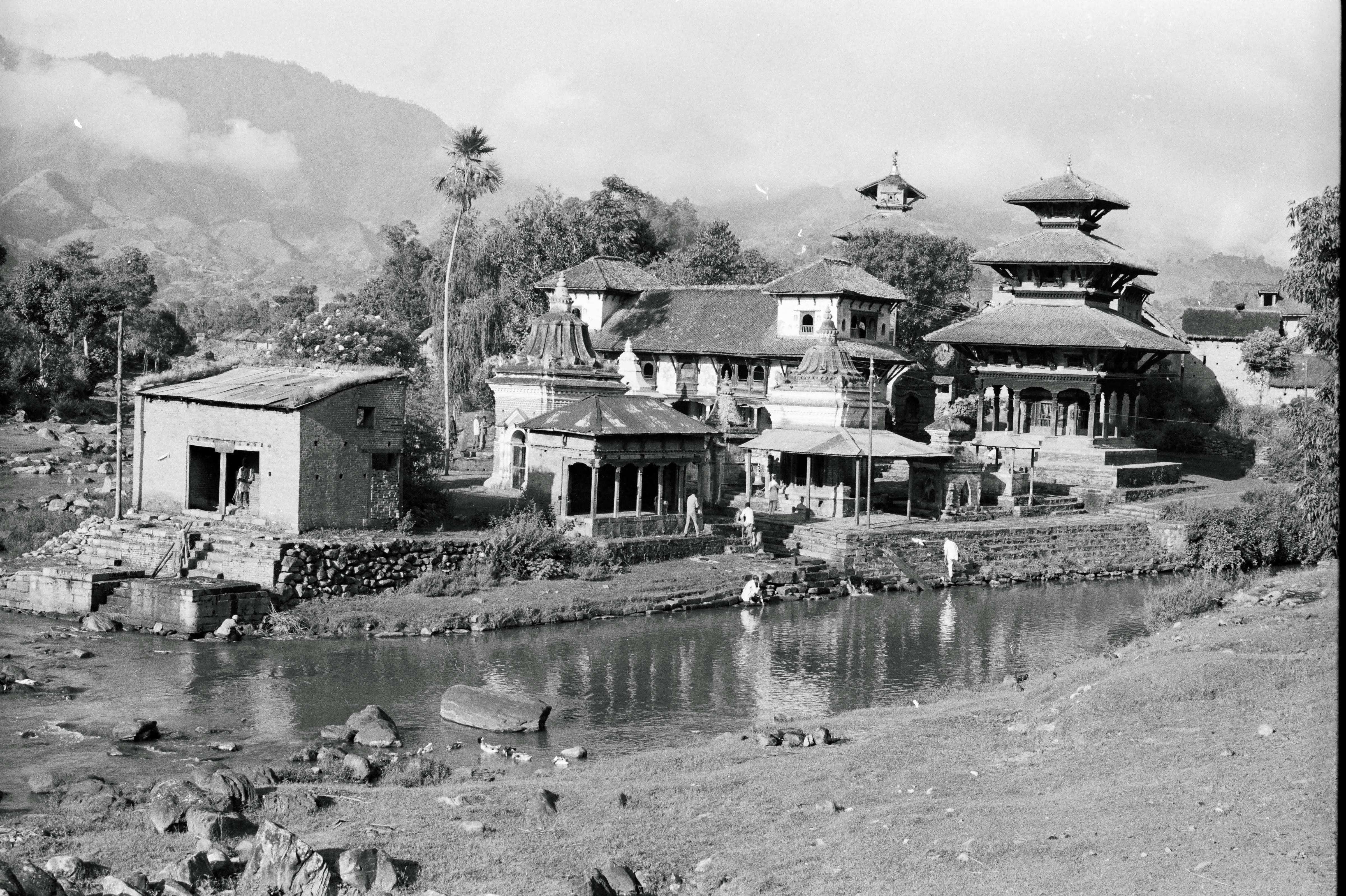
Now
A general view of the Tribeni confluence religious precinct . On the right, Krishna temple with its three stacked roofs. The dead from surrounding villages cremated there on the ghats. Newar inhabitants of Panauti are cremated at the opposite riverbank in 1977 (then) and 2020 (now).
Then
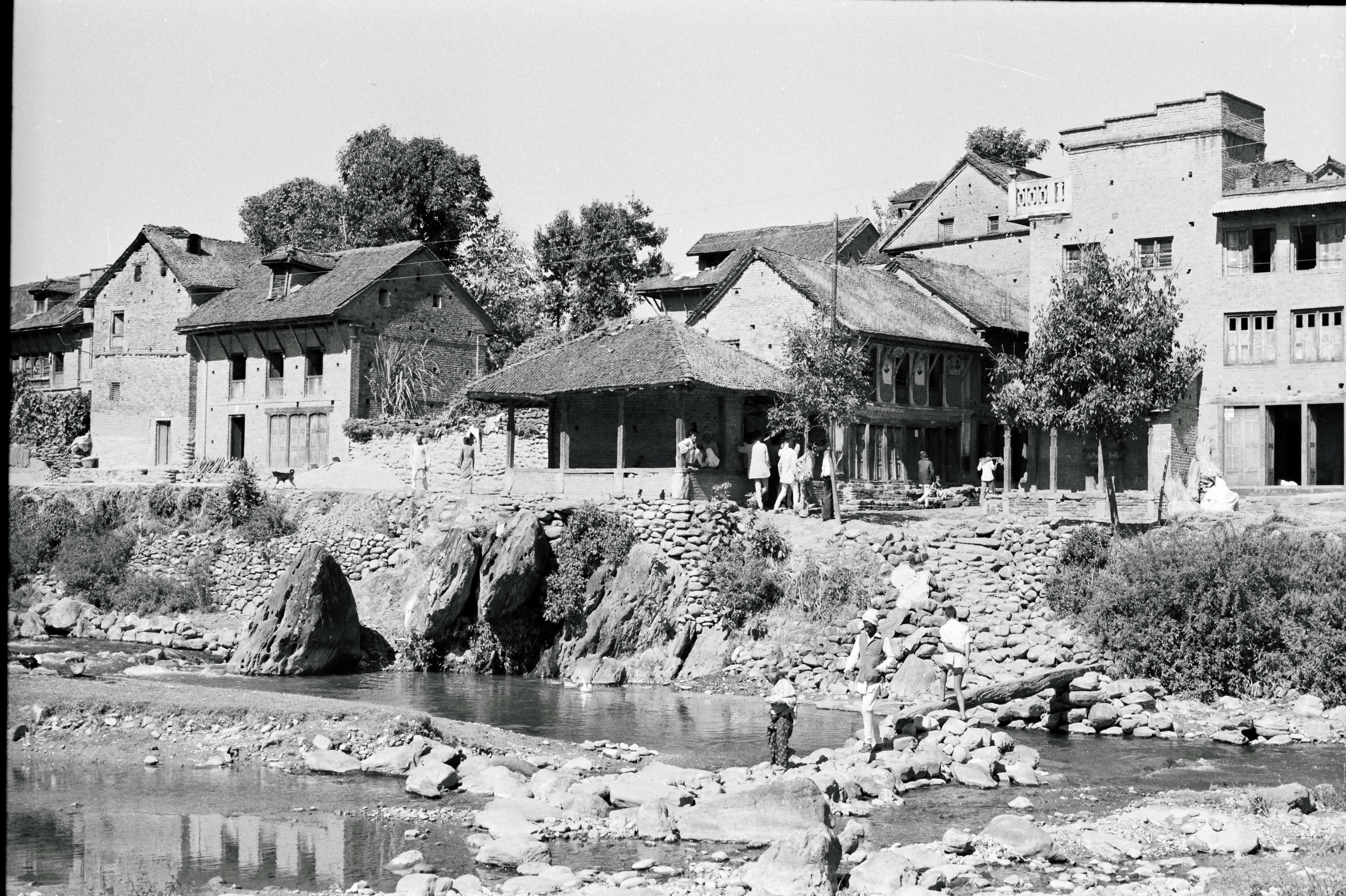
Now
South-west entrance to the city, on the Roshi Khola River in 1976 (then) and 2020 (now).
Then
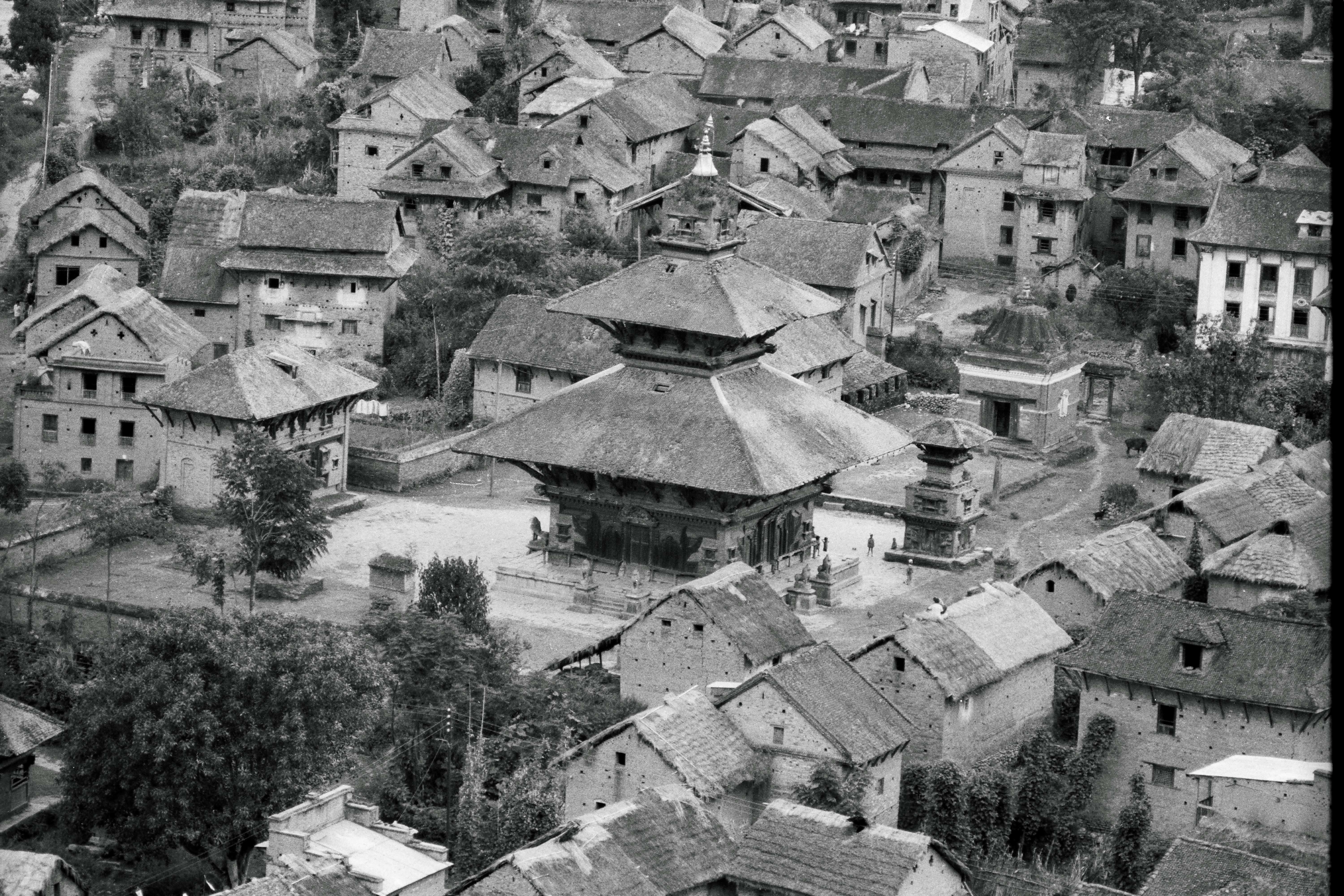
Now
Indreshvar Mahadev temple in its square-shaped compound theoretically closed by four gates in all its four cardinal points in then (1977) and now (202).
Then
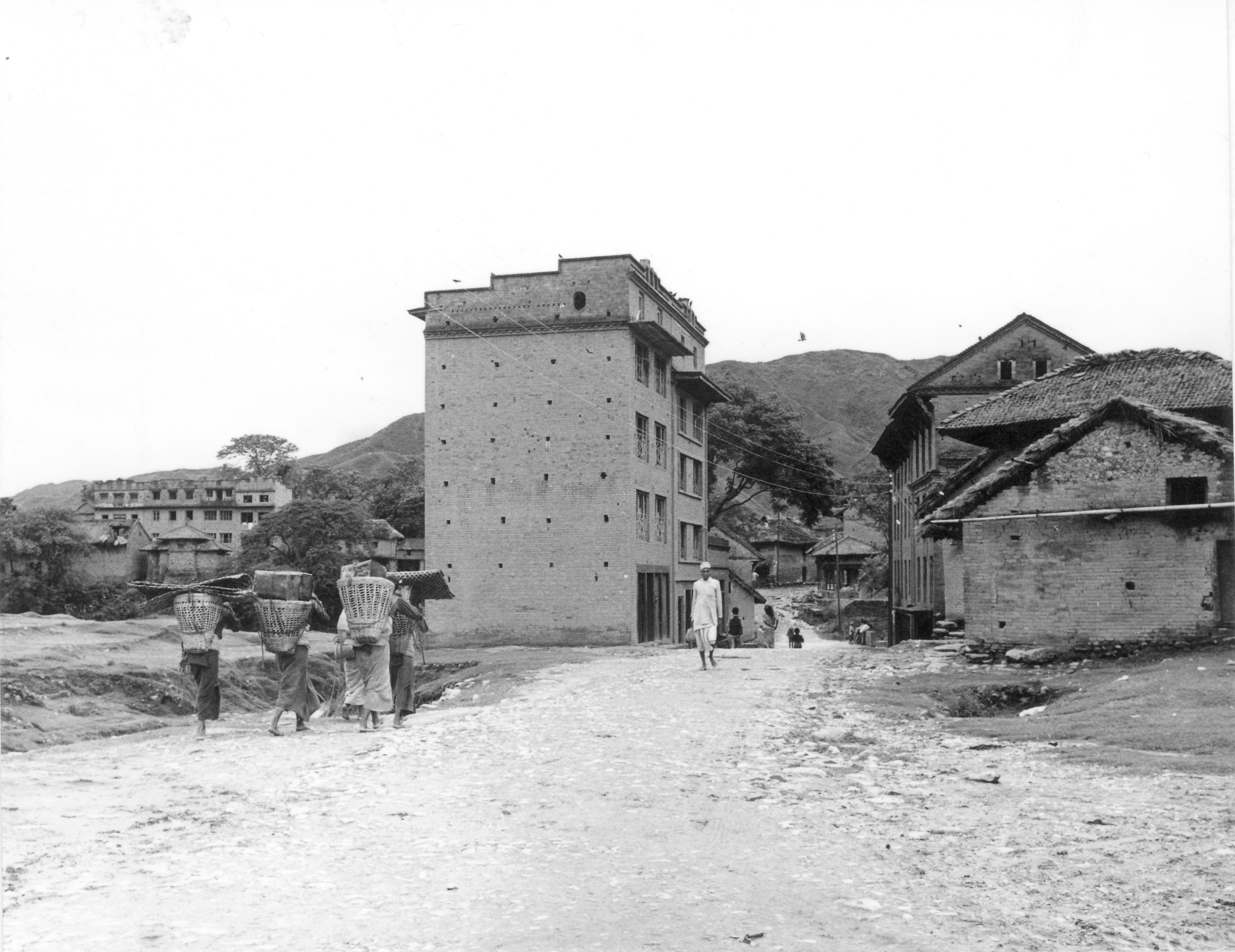
Now
Entrance to the city, bus station in 1976 (then) and 2020 (now).
Then
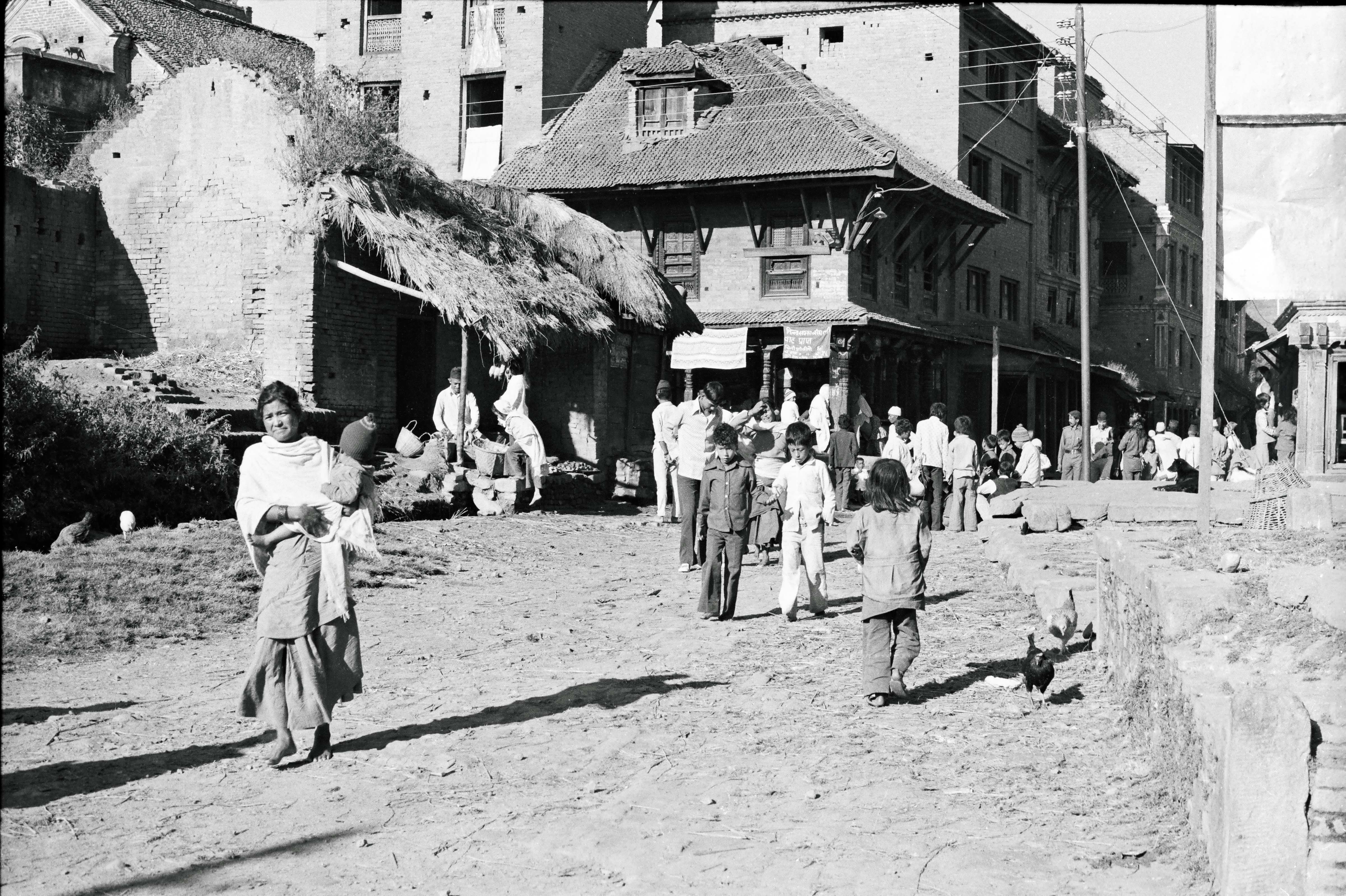
Now
Agha Tol neighborhood, crossing of trade routes, near the alleged site of the ancient Royal Palace in 1976 (then) and 2020 (now).










